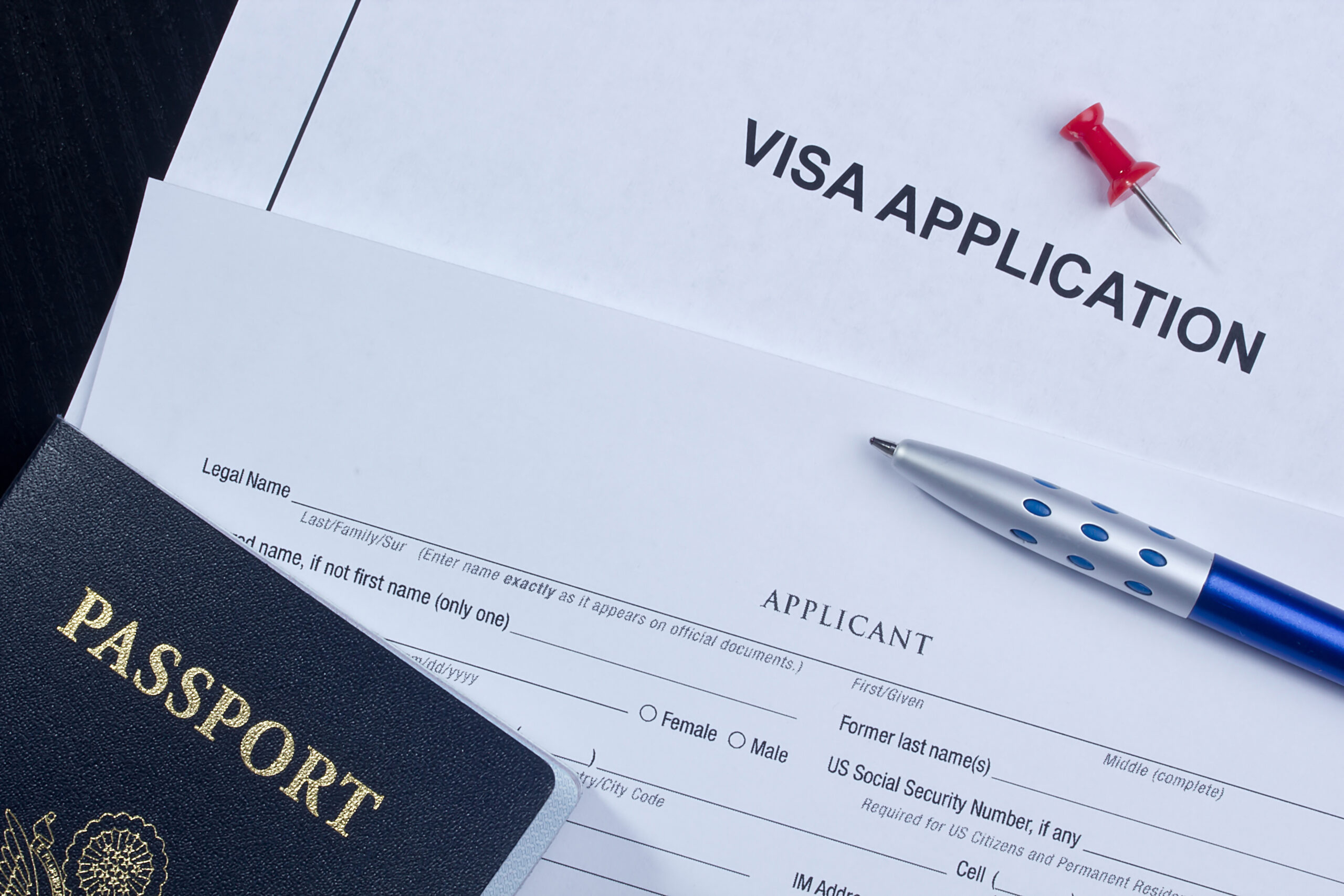Third-country nationals who have family members in Finland can apply for a Finland family visa. The majority of residence applications are on the basis of family ties, however, it’s important to know exactly who is considered a family member and how to apply for one.
Keep reading as we discuss individuals who can obtain a family visa in Finland, the requirements, and the procedures to apply.
Who Can Obtain a Finland Family Visa?
A Finland family visa is given to immediate family members of either Finnish citizens or to those who hold a residence permit. The definition of who is considered to be an immediate family member varies from country to country.
In Finland, it is a spouse, registered partner, cohabiting partner, legal guardian (if the applicant is under 18), or a child. In specific cases, a visa can be issued to someone you are dating based on an intimate relationship.
When you apply for your family visa, you need to specify whether your sponsor is your legal spouse, your child, or your parent/legal guardian.
What are the Requirements for a Finland Family Visa?
- Your passport must be valid at the time of your application and during your entire stay in Finland. An outdated passport will not be accepted, and you won’t receive a visa.
- Form PK1_plus must be filled in and signed by your sponsor in Finland. It will then be sent to you so that you can attach it to the rest of the application.
- You must attach a recent identity picture to your application and follow the guidelines set by the Schengen visa photo rules.
- You must also have a separate copy of the bio page in your passport.
- Your spouse must provide you with a copy of their passport’s bio page so that you can attach it to your application.
- Civil status documents must be recent and valid from your country of residence. These documents include birth certificates, marriage licenses, divorce licenses (if you and your spouse were divorced once and now are married again), certificates of registered partnership, certificates of dissolved partnership (if you and your partner dissolved your partnership and registered again), death certificate (if you or your spouse/partner are widowers), and adoption papers (if the application deals with a child that was adopted).
- In addition, you must provide proof that you can financially support yourself if you move to Finland. If your spouse or partner is financing your stay, you must provide their income statement. Financial security depends on the size of the family; the requirements are different for each application.
- You must also provide a certificate proving that you are legally residing in your current country. Civil courts usually issue a certificate of good standing, which proves that you are not under investigation and that there are no criminal charges against you.
- If you are employed in Finland, then you must provide a copy of your employment contract.
- You must also provide the following documents:
- Your spouse’s/partner’s bank statements from the last six months.
- Copies of your spouse’s/partner’s recent tax card, tax decision, and tax return.
- Documents related to your spouse’s/partner’s business, such as business license, income sheet, bank statements, number of employees, etc.
- Documents related to your spouse’s/partner’s pension.
- Documents related to other income assets
- If you are applying to reunite with your child in Finland, or you are applying at the same time with your child, you need to provide a paternity certificate in cases where the child was born out of wedlock.
- A letter of consent is obligatory if a minor is applying to reunite with a parent or legal guardian while the other parent or legal guardian is in another country.
How to Apply for a Finland Family Visa Based on Cohabiting Partners
If you apply for a visa regarding a cohabiting partner, you must meet these extra requirements:
- Proof of Cohabiting: You and your partner must submit proof that you have been living together in a committed relationship for the last two years. This could be a rental agreement or an owned property. If you and your partner live in different cities and you live together only during the holidays, you won’t be given a visa.
- Not Married: You must also submit proof that you and your partner are not married to someone else.
- Collective Custody: If you and your partner have a child and share custody, you must provide evidence, such as the child’s birth certificate or family certificate. If you do have joint custody over your child you won’t be required to submit evidence of living together for two years.
- Serious Explanations: If you don’t meet the general criteria for granting a visa on the basis of cohabiting partners, then you can argue your case as to why you should be given a residence permit. These cases are reviewed on a case-by-case basis by the embassy.
How to Apply for a Finland Family Visa Based on Intimate Relationship
The person you are dating is not considered to be a family member. However, if you want to apply for a family visa, you can do so on the grounds of an intimate relationship. Here are the requirements you need to meet in this case:
- Financial Stability: You must provide evidence that you can finance your stay in Finland on your own. Usually, for an adult, it’s required to have €1,000 in a personal bank account for living expenses.
- Letter About Your Relationship: You need to provide a letter explaining the nature of your relationship and why you want to move to Finland.
- Pregnancy Confirmation: If one reason you want to move together is pregnancy, you must provide a certificate of pregnancy.
Supplementing Your Visa Application
In cases where the embassies suspect dubious relationships, you may be asked to provide proof of family ties, such as:
- DNA Test: To determine the biological connection between the sponsor and the applicant.
- Age Test: This is done when there are suspicions about the age of the applicant or the sponsor.
The embassies hold the authority to ask for any additional documents.
Can I Extend a Finland Family Visa?
Yes, you can extend a family visa in Finland. The extension will depend on the type of permit you have:
- If you have a temporary B permit, you can renew your visa every year; afterward, you can switch to a continuous permit.
- If you have a continuous A permit, then you have to renew your visa every 4 years.
If your situation has changed when applying for an extension, you can’t use the same application form. If you applied for a residence permit based on family ties, specifically marriage, but you are no longer married to the same person, you must apply based on changed family ties.
If you were no longer married to your sponsor when you first applied but are working, you must apply for a new residence permit based on employment. Ensure you do so before your residence expires; if it does, you can’t work until the new residence has been issued.
If you were under 18 when you first applied for your permit, you can’t apply for an extension on the same grounds as before. Ensure you check with an official Immigration Office before your residence expires; the expiration date will be printed on your residence card.

